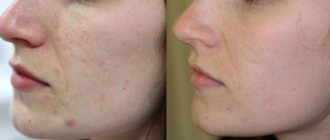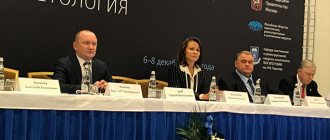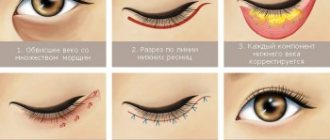The Ministry of Health approved new requirements for the work of plastic surgeons
The Ministry of Health has approved a new Procedure for the provision of medical care in the field of plastic surgery. New rules regarding the organization of activities, equipment and staffing will come into force on July 3, 2020. Roszdravnadzor explained the appearance of this document by “recent tragic cases as a result of plastic surgery.”
Roszdravnadzor did not specify which tragic incidents provoked the emergence of new requirements for the organization and equipment of clinics and plastic surgery departments. Several incidents have occurred in recent months. Three patients died at the Medlange clinic in Moscow after plastic surgery. Preliminary checks showed that in all cases the cause of death was infection. Another patient died after plastic surgery for breast correction in another metropolitan clinic, Triumph Palace.
Order of the Ministry of Health No. 298n dated May 31, 2020 “On approval of the Procedure for providing medical care in the field of plastic surgery” was published on the Roszdravnadzor website on June 29. It contains several fundamentally important innovations. In the document, which comes into force on July 3, for the first time, requirements for equipping a plastic surgeon’s office appeared - for example, it must have a portable resuscitation kit, a sterilizer for medical instruments, a dressing table, a bed for providing emergency medical care, etc. further (total 25 items of medical products and equipment). It is recommended to have at least one plastic surgeon and at least one nurse per office.
The department must have a head, a plastic surgeon (one per 10 beds), nurses, and if reconstructive operations are performed in the maxillofacial area, then an oral surgeon (one per 20 beds). The plastic surgery center must also have a center director and a chief nurse. Staffing standards, however, may differ for private clinics, which is separately indicated in the order.
In addition, the plastic surgery center is recommended to have equipment for broadcasting from operating rooms with two-way communication capabilities, audio and video broadcasting in the audience, emergency medical care for shock, bedside monitors, a mobile X-ray machine, equipment for the operating room, and so on. .
The last time the Ministry of Health introduced amendments to the current Procedure for the provision of medical care in the field of plastic surgery was in July 2020. Then this was also related to the incident. Blogger Anastasia Shpagina (the audience of her YouTube channel at that time exceeded 2.8 million subscribers) publicly stated that she was dissatisfied with the rhinoplasty that Timur Nugaev, a plastic surgeon at the St. Petersburg Parada clinic, performed on her. Now, after any plastic surgery, the patient must remain under observation in the clinic’s hospital for at least one day; accordingly, outpatient surgical interventions, which are often found in the practice of surgeons, are prohibited.
Source Roszdravnadzor
Subscribe to our channel in Telegram Subscribe to our channel in Yandex Zen
Share on social networks
+1 +1 +1 +1
Criticism of the new Order of the Ministry of Health
September 7, 2020
Since July, the Russian plastic surgery market has been going through difficult times. During this period, Order No. 298n of the Russian Ministry of Health came into force, which introduced a new Procedure for the provision of medical care in this profile. The document, according to the developers, increases patient safety and will lead to a reduction in the number of deaths during aesthetic operations. To achieve these goals, the Ministry of Health obliged clinics to create new structural units and have expensive diagnostic equipment. The demands presented obviously came as a surprise to the professional community, whose members began to express their bewilderment at the proposed changes on social networks.
To improve the situation, it was decided to hold a public discussion. On September 4, a round table was held in the conference hall of the Rossiya Segodnya news agency. The chief freelance plastic surgeon of the Ministry of Health, Natalya Evgenievna Manturova, gathered her colleagues and related specialists for a discussion on the new procedure for providing medical care in the field of plastic surgery. Thus, the first open discussion on such a pressing issue took place in Moscow.
A short educational program from Natalia Manturova
Natalya Manturova called on her colleagues not to complicate the situation with disputes and radical statements
The round table was opened by Natalya Manturova, who commented on the main points that raise the most questions among plastic surgeons. The chief freelance specialist supported the new document and called on colleagues for a constructive discussion, rather than complicating the situation with disputes and radical statements.
The main question that plastic surgeons had after reading the new Order concerned the requirements for the education of specialists. The majority were interested in whether doctors who had undergone professional retraining before 2020, and who had not completed residency in plastic surgery, could continue to operate. Manturova reassured those worried that the legitimacy of previously received documents is not lost: “Orders do not have retroactive force.”
The chief freelance specialist also supported the requirements for equipping clinics with expensive diagnostic equipment, a blood transfusion room, intensive care units, etc. Natalya Evgenievna justified the need for all of the above updates with the risk of developing complications in patients, in matters of saving which the time spent on the correct diagnosis of pathology and speed of resuscitation.
Roszdravnadzor votes for new standards, and surgeons ask to hold off on the results
The head of the Territorial body of Roszdravnadzor for Moscow and the Moscow region, Andrei Plutnitsky, and the head of the Department for organizing state control over the quality of medical care provided to the population of Roszdravnadzor, Anatoly Sharonov, unconditionally supported the Order of the Ministry of Health.
Those present were shown footage taken during clinic inspections, showing the storage of implants with non-medical products, or, for example, re-sterilized disposable dressings ready for the next use. Representatives of Roszdravnadzor paid special attention to the issue of tightening requirements for the education of surgeons, supporting their opinion with the results of departmental inspections. At the time of the discussion, 540 medical organizations were inspected, in 67% of which violations of various kinds were identified. Officials also discovered 70 specialists whose qualifications did not meet the required standards. But ROPREH President Konstantin Lipsky stood up for the specialists. The expert considered that, most likely, this list included doctors who underwent professional retraining, and not residency in plastic surgery:
“Since the specialty is very young, everyone present in this room most likely does not have this certificate. Because when the specialty was introduced, we underwent professional retraining. Thus, professional retraining is a legitimate way to obtain a specialty, so we must take our side, otherwise we will end up in great difficulties.”
ROPREH President Konstantin Lipsky stood up for plastic surgeons
Lipsky was supported by reputable plastic surgeons Vladimir Vissarionov and Kirill Pshenisnov. The latter said that, despite many years of experience, the title of professor and the availability of a specialized textbook under his authorship, it took him 2 weeks and the written support of all his colleagues to prove his professional suitability to the inspection agencies. Pshenisnov mentioned that his case was not an isolated one and named the names of his colleagues who faced a similar situation.
Vladimir Vissarionov was more emotional and expressed his point of view on the new Order. The surgeon recommended introducing standards for examining patients. The expert was also concerned about the position of the inspection bodies on the issue of technical equipment of clinics, which immediately “signed a verdict” on medical centers that do not have a CT scanner. The doctor assured that even if the clinic had the device, there would be a problem finding personnel who knew how to operate it.
The President of ROPREH raised the issue of another problem in the industry - an oversupply of personnel and the general low level of training of young specialists. In his opinion, as well as that of Professor Alexander Nerobeev, who spoke earlier, it is this category of plastic surgeons that is the reason for the increase in the number of complications. The professor also proposed to exclude minimally invasive techniques that do not require heavy diagnostic equipment from the scope of the document.
According to Anatoly Sharonov, 105 clinics applied to Roszdravnazdor to suspend their licenses. Industry experts are concerned about the fate of the staff of these institutions, who will now be forced to look for work and it is unknown whether they will be able to find the desired position on the labor market. As one of the options to mitigate the situation, plastic surgeons made a proposal to create a transition period so that clinics could work through all the issues and have time to bring the medical center to compliance with all the new requirements of the Order.
Plastic surgery is the new order!
Order of the Ministry of Health dated May 31, 2020 No. 298n establishes a new Procedure for providing medical care to adults and children in the field of plastic surgery. What changed? Medical care is provided in the form of: primary specialized and specialized medical care. High-tech medical care is excluded. The conditions for providing medical care are clearly defined. Primary specialized health care is provided by plastic surgeons on an outpatient basis (in the plastic surgeon’s office) and includes measures to identify anatomical and functional defects. Specialized medical care is provided by plastic surgeons in inpatient settings (in plastic surgery departments or plastic surgery centers). The forms of medical care have been determined: emergency - medical care provided for sudden acute diseases, conditions, exacerbation of chronic diseases that pose a threat to the patient’s life; emergency - medical care provided for sudden acute diseases, conditions, exacerbation of chronic diseases without obvious signs of a threat to the patient’s life; planned - medical care that is provided in the treatment and prevention of diseases and conditions that are not accompanied by a threat to the life of patients, that do not require emergency and urgent care, the delay of which for a certain time will not entail a deterioration in the condition of patients, a threat to their life and health. In order to ensure the availability and quality of medical care, medical organizations can use telemedicine technologies, in accordance with Order of the Ministry of Health of the Russian Federation of November 30, 2020 N 965n “On approval of the procedure for organizing and providing medical care using telemedicine technologies.” The rules for organizing the Center are separately specified in Appendix No. 7 plastic surgery.
The center is organized if the medical organization has the following operating around the clock: an X-ray department equipped with a stationary X-ray diagnostic machine and (or) a stationary X-ray CT machine, as well as a mammographic X-ray machine and (or) an MRI machine with the ability to perform MRI of the mammary glands; anesthesiology-resuscitation department for the adult population or an anesthesiology-resuscitation department with resuscitation and intensive care wards for the adult population, organized in accordance with the Procedure for providing medical care to the adult population in the field of anesthesiology and resuscitation of the anesthesiology-resuscitation department or anesthesiology-resuscitation center, organized in accordance with the Procedure for providing medical care to children in the field of anesthesiology and resuscitation of the transfusion room (blood transfusion room); operating room (operating unit); dressing room
The X-ray department, the department of anesthesiology and resuscitation, the clinical diagnostic laboratory, the transfusion room, the operating unit must be located within the property complex, functionally and technologically combined with the plastic surgery departments of the Center, those in one complex of buildings.
The text of the order can be downloaded below.
“Not all plastic surgery clinics liked the new requirements. But I had to change"
Author:
Reznik Irina
5 minutes
A year has passed since the entry into force of the Procedure for the provision of medical care in the field of plastic surgery, which established new requirements for plastic surgery clinics. What are the pros and cons of the new order, what is changing in the industry and how it affects patients, said the chief freelance plastic surgeon of the Ministry of Health, MD. Natalya Manturova.
Natalya Evgenievna, who are your patients? And how many people today need the help of a plastic surgeon?
— According to our calculations, the number of people who require the help of a plastic surgeon in Russia is more than 1 million annually. These are those operations that directly affect the quality of life of people - operations for aesthetic reasons: correction of disfiguring scars, correction of the consequences of burns, dog bites. These are operations for medical reasons: in children diagnosed with cleft palate, cleft lip, hemangiomas; reconstructive mammoplasty for women after resection of the mammary glands as a result of oncology. Rhinoplasty, when a deviated septum prevents normal breathing, a person cannot sleep, and suffers from headaches. Surgeries on the hand that restore its functionality, correction of wounds received in accidents and many others.
The plastic surgery market in Russia, as well as throughout the world, is actively growing and developing. Every year the number of operations in our profile increases. Today, more than one and a half thousand plastic surgeons work in Russia.
{#vrez.60177}
And as the market grows, the number of reports of violations in the provision of such assistance and their consequences increases.
- Unfortunately yes. Based on the results of an inspection by Roszdravnadzor, 252 Russian clinics were closed for violations in 2020. Most of the complaints concerned the lack of round-the-clock medical observation and treatment of patients, the use of unregistered, falsified, substandard medicines and medical products, and non-compliance with storage conditions for medicines.
So what should we do about it?
— Recently, the Ministry of Health, Roszdravnadzor, Rospotrebnadzor, and the Russian Society of Plastic, Reconstructive and Aesthetic Surgeons have done a tremendous amount of work to ensure the safety of providing care to our patients. On July 3, 2020, Order of the Ministry of Health of the Russian Federation No. 298n dated May 31, 2018 “On approval of the Procedure for providing medical care in the field of plastic surgery” came into force. The document was the result of joint work of the Ministry of Health and the professional community of plastic surgeons. The order regulates new requirements for organizations that provide medical care in this profile and determines the scope of care in outpatient and inpatient settings. The entire industry moved towards these changes systematically, accumulating many years of experience. They have been repeatedly discussed by the professional community.
Today, a year later, we can already draw the first conclusions. Does the order work?
— The strength of this document is the change in the rules for organizing plastic surgery departments and centers. The order regulates the mandatory presence of an anesthesiology and intensive care department, a transfusiology department, and the availability of the necessary diagnostic equipment: equipment for radiation and laboratory diagnostics. All these innovations have a positive impact on the safety of patients receiving medical care in the field of plastic surgery. These requirements make organizing a plastic surgery clinic more expensive, but the safety of our patients is much more important.
As for the results, thanks to the changes in the year since the introduction of the new order, the number of complications has noticeably decreased . The vast majority of clinics were able to bring their plastic surgery departments into compliance with the requirements specified in the new order. The industry is definitely becoming more civilized, and patients have wide opportunities to choose both a clinic and a surgeon.
Have any disadvantages of the new order already appeared? Does it need to be improved?
— Not all clinics, of course, liked the new Order; a lot had to be changed. But the new Procedure for Plastic Surgery has been worked on for more than a year and was created through the joint efforts of leading industry specialists, employees of the Ministry of Health and Roszdravnadzor. It is a balanced and rational document. There are currently no plans to introduce any amendments to the Procedure.
Are there any plans to include plastic surgery in compulsory medical insurance?
— Currently, plastic surgery is not included in the compulsory health insurance program. The introduction of plastic surgery into the compulsory medical insurance framework is an important stage in the development of our specialty, and we are actively working on this. To do this, it is necessary to form and approve clinical and statistical groups on plastic surgery, calculate the population’s need for plastic surgeons, make changes to regulatory documents, and much more.
The Ministry of Health has approved the professional standard of a plastic surgeon. What is his future fate?
— The standard itself is being signed by the Ministry of Labor and Social Protection. But new approaches related to it are already working . Last month, the first defense in the specialty “plastic surgery” took place at the first and only Dissertation Council in Russia in the specialty “plastic surgery”. Until this time, defenses of plastic surgeons took place at dissertation councils of other specialties. The dissertation council is an important step confirming the scientific component of the specialty “plastic surgery”; it will accelerate and expand the areas of development of aesthetic medicine in the country.
Are there any plans to go further and divide plastic surgery into aesthetic and reconstructive? After all, these are practically different disciplines that solve different problems.
- Actually, this is not so. Plastic surgery is a single discipline. The basis of the education of a plastic surgeon is the implementation of comprehensive training of a multifaceted specialist. There are no plans to separate plastic surgery.
Any surgical intervention is not safe. What are the risks for people who decide to undergo plastic surgery?
— Operations in plastic surgery have a noticeably lower risk of complications than in most other specialties, but there are still risks. General surgical complications can occur with any surgical intervention, regardless of specialty. These include bleeding, the formation of postoperative hematomas, infectious complications and others, of which there are many. However, with high-quality treatment, their occurrence can be minimized.
It's a different matter when it comes to underground operations or fly-by-night clinics. A few months ago, a round table “Complications after the injection of fillers” was held in Grozny with the participation of leading specialists in the field of plastic surgery and dermatocosmetology in Russia and the North Caucasus Federal District. At the event it was said that hundreds of girls and women become disabled for life due to the unprofessional and criminal actions of false cosmetologists.
Speaking about underground operations, we must understand that they cause problems for both women and men in all regions.
Roszdravnadzor, which regularly reports complications after plastic surgery, recommends that citizens carefully consider who they trust with their beauty and health. What should a plastic surgeon be like? How to choose the right clinic and doctor?
— In Russia, there are clear requirements for the education of a specialist doctor - a plastic surgeon and for plastic surgery clinics. The doctor must have a current certificate as a plastic surgeon . The clinic must have a license to provide specialized medical care in a 24-hour hospital setting in the specialty of plastic surgery. It is worth saying that the names of well-known clinics that have been operating for a long time are well known. Of course, in such organizations the chance of receiving poor-quality medical care without support in the event of complications tends to zero.






